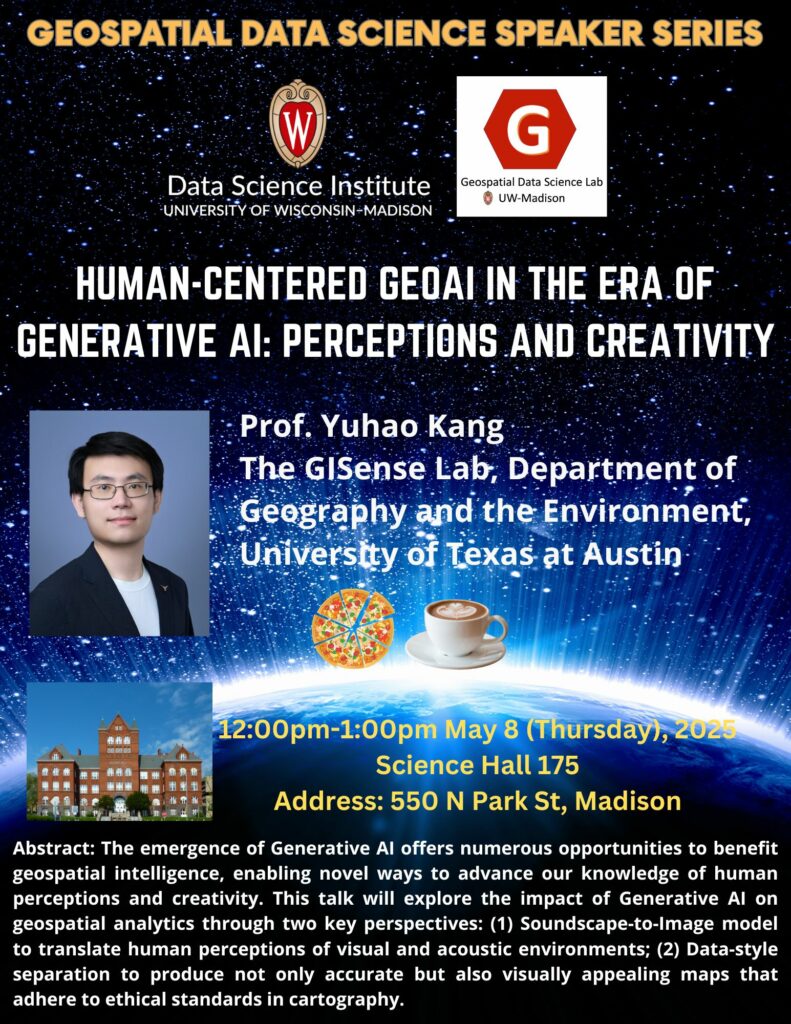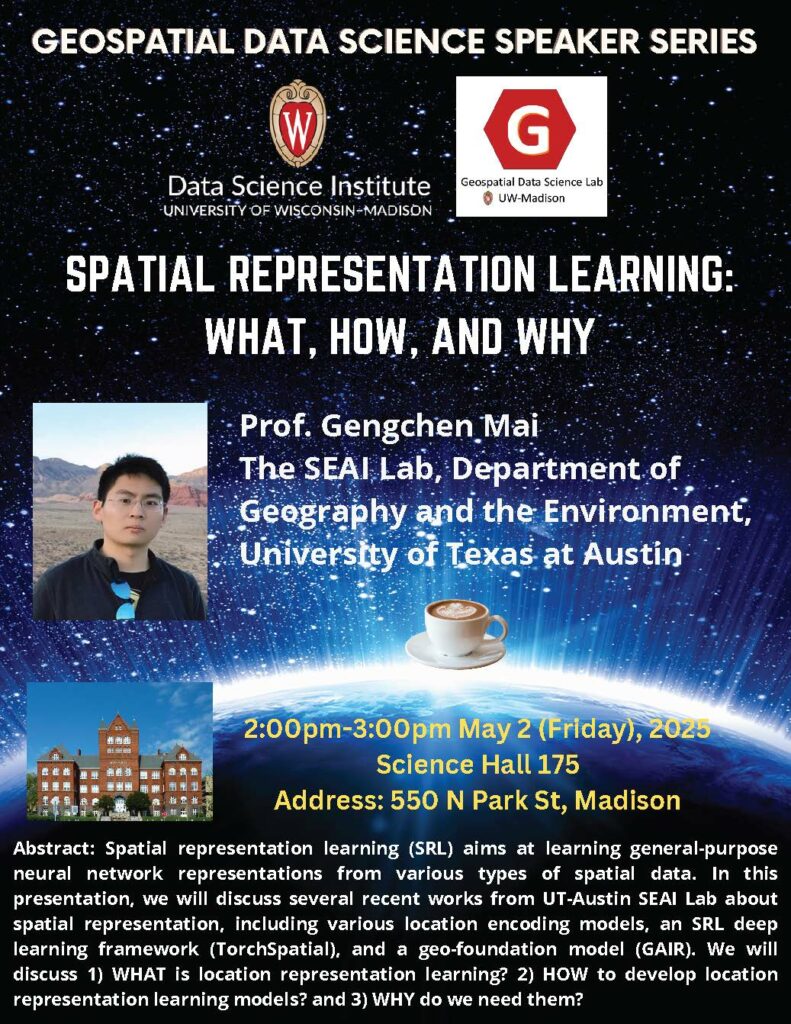Title: Human-centered GeoAI in the era of Generative AI: Perceptions and Creativity
Abstract: The emergence of Generative AI offers numerous opportunities to benefit geospatial intelligence, enabling novel ways to advance our knowledge of human perceptions and creativity. In Dr. Kang’s talk, he will explore the impact of Generative AI on geospatial analytics through two key perspectives. First, he will discuss how a Soundscape-to-Image model could translate and visualize human perceptions of visual and acoustic environments. Second, he will illustrate how generative AI, through the process of data-style separation, can produce not only accurate but also visually appealing maps that adhere to ethical standards in cartography. His talk will delve into the transformative potential of Generative AI in the development of Human-centered GeoAI.
Bio: Dr. Yuhao Kang is a tenure-track Assistant Professor, directing the GISense Lab at the Department of Geography and the Environment, The University of Texas at Austin. He was a postdoctoral researcher at the MIT SENSEable City Lab, received his Ph.D. from the GeoDS Lab, University of Wisconsin-Madison, and obtained his bachelor’s degree from Wuhan University. Before joining UT-Austin, he had working experience at the University of South Carolina, Google X, and MoBike. He was the founder of the non-profit educational organization GISphere that promotes global GIS education. Dr. Kang’s research mainly focuses on Human-centered Geospatial Data Science to understand human experience at place and develop ethical and responsible geospatial artificial intelligence (GeoAI) approaches. He was the recipient of the Waldo-Tobler Young Researcher Award by the Austrian Academy of Sciences, CaGIS Rising Award, CPGIS Education Excellence Award, etc.

